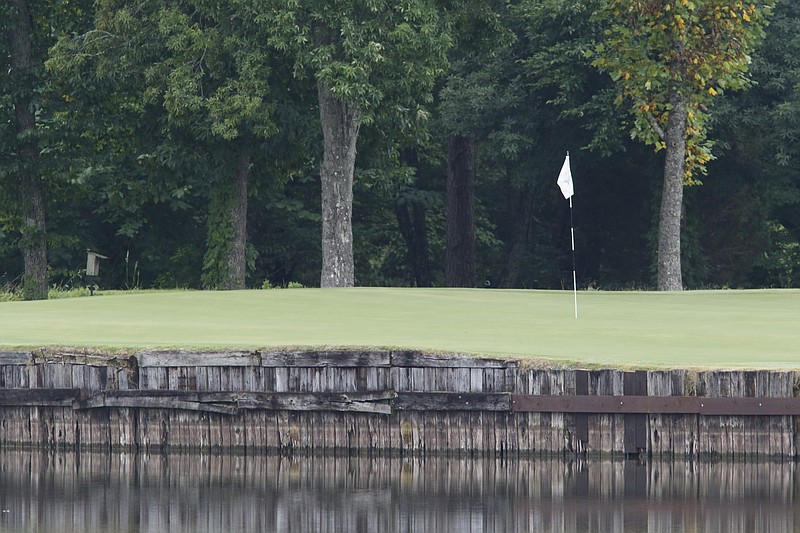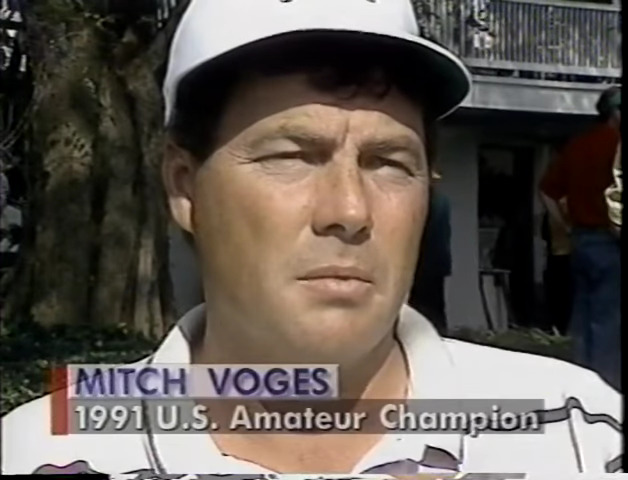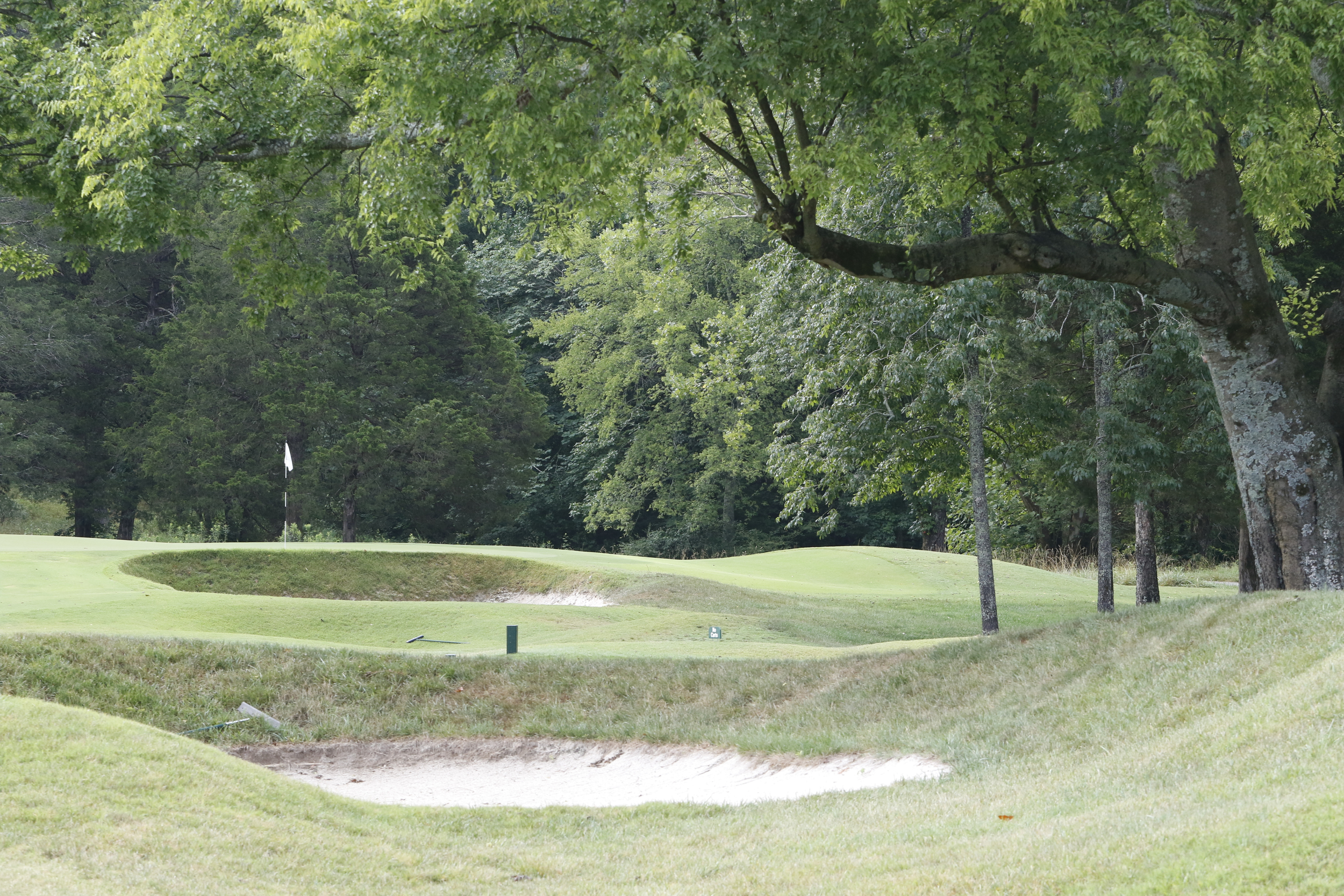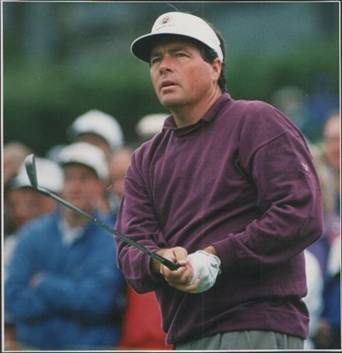A rich history
The Honors Course opened in 1983 and since has held multiple prestigious events:› Southern Amateur — 1986, 2004, 2014› Tennessee Women’s State Amateur — 1987, 2008› Tennessee Men’s State Amateur — 1989, 1999, 2009› U.S. Amateur Championship — 1991› The Curtis Cup Matches — 1994› Canon Cup — 1995, 2007› Men’s NCAA Division I National Championships — 1996, 2010› The Palmer Cup — 1999› The Western Junior Championship — 2001› U.S. Mid Amateur Championship — 2005› USGA Senior Women’s Amateur Championship — 2011› U.S. Junior Amateur Championship — 2016Source: Honorscourse.net
Tiger Woods, Phil Mickelson, Justin Leonard and Matt Kuchar won the U.S. Amateur Championship during the 1990s before driving, chipping and putting their way to millions of dollars on the PGA Tour.
In August 1991, the unlikely Mitch Voges added his name to the U.S. Amateur winners list by prevailing at The Honors Course.
"I like to kid guys all the time and tell them I won the Amateur between Mickelson and Leonard and that I'm not really sure what happened to those guys," Voges said recently by phone. "People may not remember me exactly, but they have this fuzzy memory of a father and a son. My son Christian caddied for me, and he turned 13 that week.
"I got letters from Italy and Colombia and all over the place from dads saying, 'I am going to have my son caddie for me, because I want to share in the same experience.' Those would bring tears to my eyes, because there was a connection there."
As The Honors Course prepares to host the U.S. Junior Amateur for the first time July 18-23, Voges remembers the U.S. Amateur from a quarter century ago as if he was just walking off the immaculate grounds in Ooltewah.
The 1991 U.S. Am championship earned Voges an invitation to the 1992 Masters, U.S. Open and British Open, but he failed to make the cut at any of those famed events, leaving his Amateur title as his crowning moment as a player.
"That weekend is still extremely vivid for me," the longtime Californian said. "I remember a lot of the shots, but more than anything, I remember the people at The Honors Course, from Mr. (Jack) Lupton to everybody in the golf shop and the locker room. The memories of them remain dear to me today."
Unlike Woods, who won three U.S. Amateur titles and the 1996 NCAA men's championship at the Honors (defeating Rory Sabbatini by four strokes) before claiming 14 majors as a professional, Voges took a different path. In 1996, he co-founded Max Out Golf, a company that seeks to improve golfers of all abilities through the combination of high-tech club fitting and fundamental instruction.
A dominating win
Voges was 41 when he won the 1991 U.S. Amateur, so it hardly served as a launching point to a playing career.
He had competed for two seasons at Brigham Young, where he was a teammate for a year with eventual U.S. Open and British Open champion Johnny Miller, but continually battled back pain. In 1975 when he was 25, his back gave out while he was trying to lift something from the trunk of his car, and he underwent a three-level fusion a decade later.
By the time the 1991 U.S. Amateur was approaching, Voges told his wife, "This is probably my last rodeo," but he developed a quiet confidence after arriving in Chattanooga.
"I played a couple of practice rounds with a good friend of mine before the tournament," Voges said, "and he looked over at me on the sixth hole of The Honors Course and said, 'You are in your element here. You could win this week.'
"It wasn't a course where you could just be able to bomb it. You had to think your way through, and it was all about strategy and position - club selection off the tee and placement of the irons, which I felt was the strongest part of my game."
Voges was pitted in the 36-hole final against Manny Zerman, who had lost to Mickelson in the championship match of the 1990 U.S. Amateur, but the 1991 showdown was over almost as soon as it started. Voges won four of the first seven holes and maintained the 4-up advantage after the morning 18, and he birdied the first hole in the afternoon to go 5 up on his way to a 7 and 6 victory.
Only two U.S. Amateur tournaments since have been decided by larger margins.
"I was never one who could blister it with a putter all day long, and it just worked out," Voges said. "When it was over, I thanked Mr. Lupton for building a course a guy like me could win on."
After the triumph
Winning the 1991 U.S. Amateur earned Voges a spot on the U.S. Walker Cup team, and that competition in Ireland ultimately paved a new avenue for him in the sport.
When the U.S. team went back and forth from practice in the days leading up to the Walker Cup, Voges made sure his seat on the bus was next to Frank Thomas, the technical director of the United States Golf Association. For 26 years until leaving his USGA post in 2000, Thomas was responsible for testing and then ruling on whether the latest new clubs or balls would be acceptable.
"At first, I had to be a thorn in his side," Voges said. "I would be like, 'Hey, Frank, should I be playing with cycolac or gamma-fire inserts? Should I be playing with a lithium- or Surlyn-covered ball?' I would ask him a bunch of these questions, and after a while, I could tell he was starting to enjoy these conversations.
"I said, 'Frank, now that I'm on the American team, shouldn't you guys be able to tell me which kind of equipment I should be playing?' He said, 'We have not reached that day yet, but maybe in the future,' and that's what got me started."
Max Out Golf, according to Voges, is about pinpointing the three T's: talent, technique and technology. A thorough fitting at Max Out can cost $300 and take hours, because Voges and his staff employ high-speed cameras, sensors and accelerometers that capture the physics of a swing, while computers track launch angle, velocity and spin rates.
Everything from clubhead size to grip size to ball selection is evaluated, with Voges comparing the process to buying a suit from a respected tailor.
Voges has returned three or four times to The Honors Course since winning the U.S. Amateur, and he is an honorary member of the club. He may not have gone on to greatness on the course, but the title of Amateur champion certainly didn't hurt when he was getting his company up and running.
"I got a chance to be Miss America in the game for a year, and it was a fabulous experience," Voges said, "but I don't love the game any more than anybody else. I just got the chance to carry the torch for a little while and pass it on, but I was always more interested in finding a way to provide an informative service to the average golfer."
Contact David Paschall at dpaschall@timesfreepress.com or 423-757-6524.



